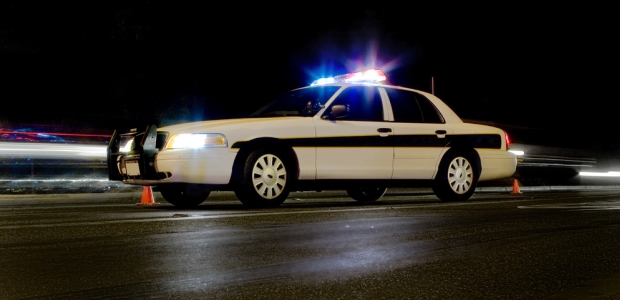
Task Force Recommends Publicized Sobriety Checkpoints
The Community Preventive Services Task Force is recommending that jurisdictions where sobriety checkpoints are legal use publicized sobriety checkpoint programs because they are an effective way to reduce alcohol-impaired driving.
The Community Preventive Services Task Force has published a recommendation that jurisdictions where sobriety checkpoints are legal make use of publicized sobriety checkpoint programs because they are an effective intervention to reduce alcohol-impaired driving. The recommendation is based on a systematic review of all available studies that was conducted by scientists and subject matter experts from CDC in collaboration with government, academic, policy, and practice-based partners. The recommendation and evidence review are included in the May issue of the American Journal of Preventive Medicine.
The task force is an independent, non-federal, unpaid panel of 15 public health and prevention experts who are appointed by CDC's director. They provide evidence-based findings and recommendations about community preventive services, programs, and policies to improve health. The members serve five-year terms, with possible extensions.
Sobriety checkpoints can utilize Selective Breath Testing, where police must have reason to suspect that a stopped driver is intoxicated before a breath test can be requested (the practice used in the United States), or Random Breath Testing, where all stopped drivers are given breath tests for blood alcohol concentration levels (the practice used in Australia and some European countries).
The review was based on a Community Guide systematic review published in 2001 that had included 23 studies, in combination with 15 more recent studies. The results include these:
- a median relative decrease of 8.9 percent in crash fatalities thought to involve alcohol was associated with selective breath testing checkpoints
- a 14 percent relative decrease in the ratio of alcohol-involved drivers to non-alcohol-involved drivers in fatal crashes
- an 18.8 percent relative decrease in fatal and non-fatal crashes thought to involve alcohol
- relative decreases of drivers with a BAC level above the legal limit (28 percent in one study and 64 percent in a second study)
- a 22 percent relative decrease in serious and fatal nighttime crashes was associated with random breath testing checkpoints, according to one New Zealand study.
As of April 2014, 12 states have legal restrictions against using checkpoints in place: Alaska, Idaho, Iowa, Michigan, Minnesota, Montana, Oregon, Rhode Island, Texas, Washington, Wisconsin, and Wyoming, according to the task force, which notes that news coverage is an integral part of publicized sobriety checkpoint programs, in order to publicize the program and increase the population's perceived risk of arrest for alcohol-impaired driving.